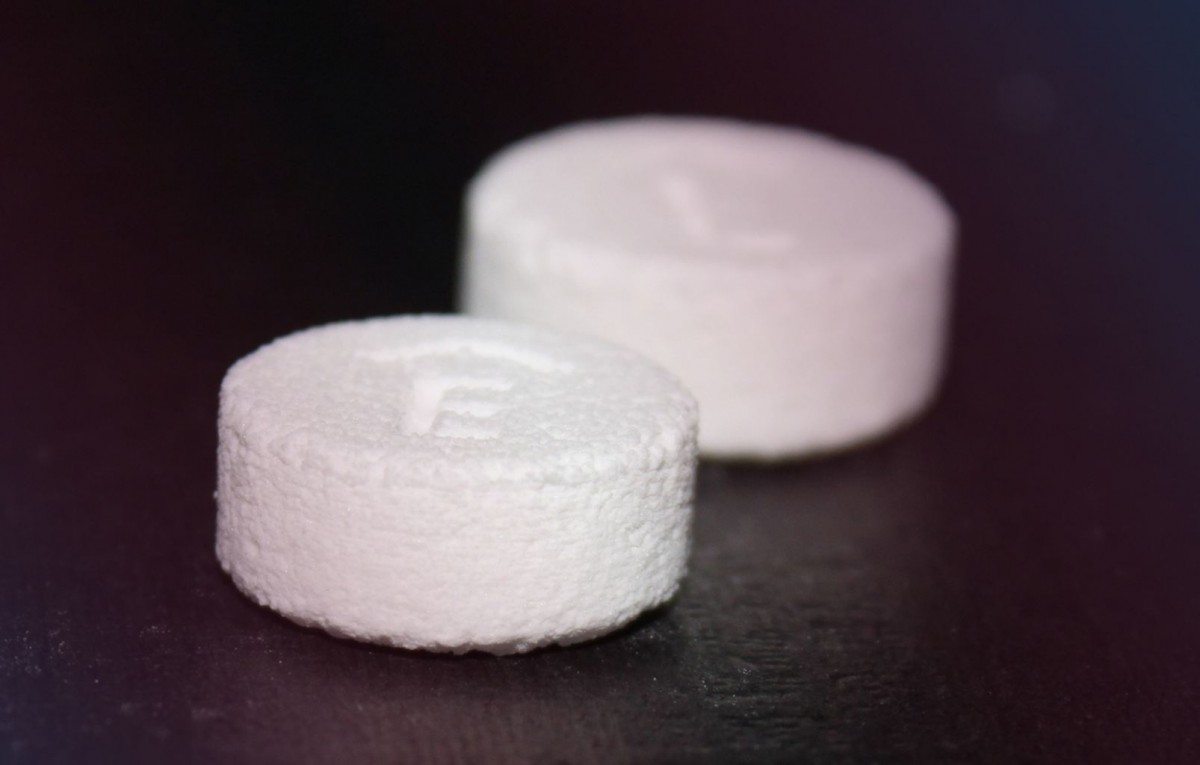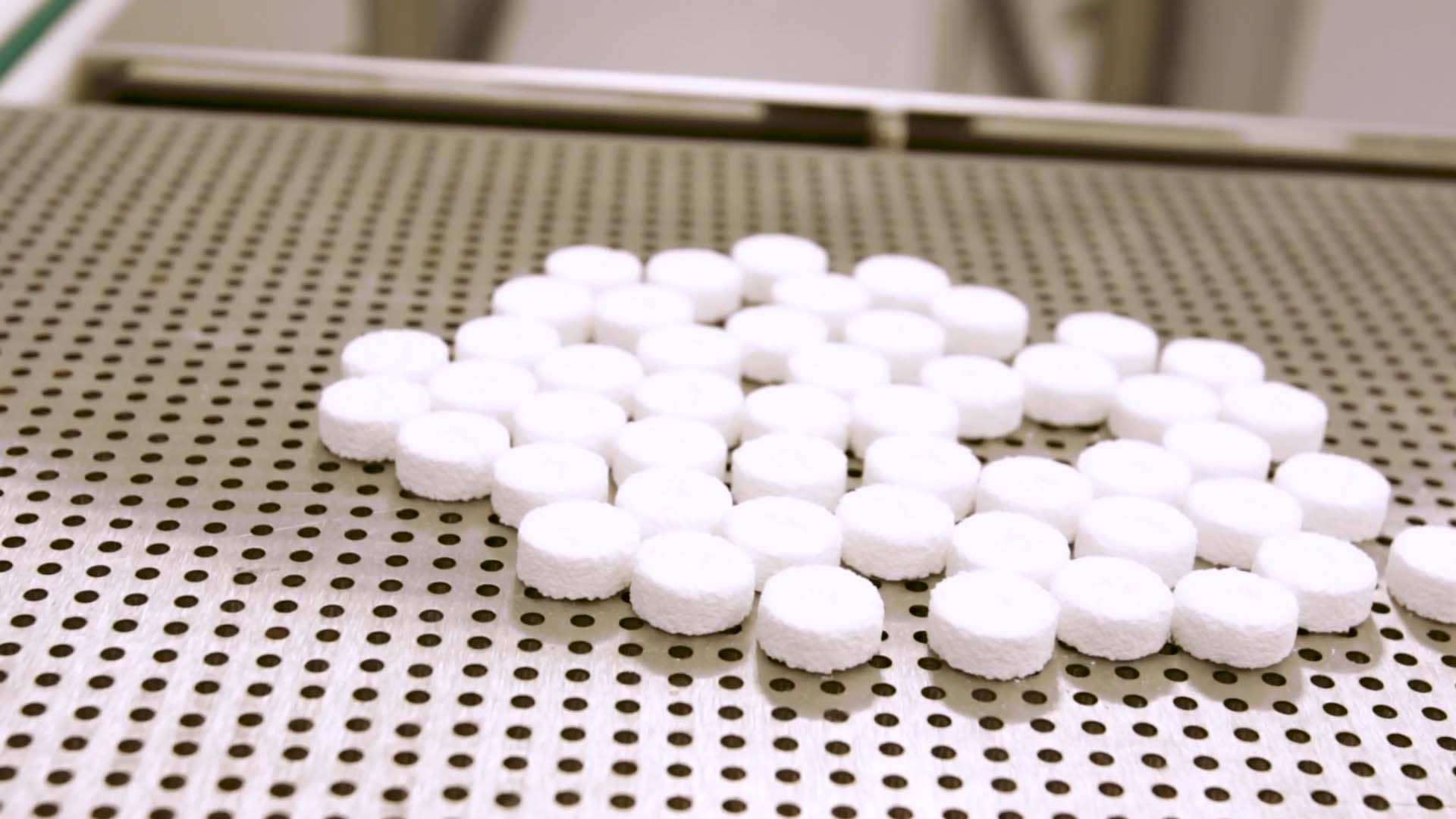Aprecia Pharmaceuticals, the company behind the first FDA approved 3D printed drug Spritam, has announced a partnership with Purdue University’s College of Pharmacy to advance the technology and science of 3D pharmaceutical printing. Their collaboration will focus on developing future 3D printed pharmaceutical equipment and medications.
“Aprecia’s mission is to maximize and expand its 3DP technology platform through global partnerships that will provide pharmaceutical solutions for unmet patient needs,” commented Aprecia CEO, Chris Gilmore.
“Purdue University is an esteemed institution, and we are confident that this partnership will advance our future in 3DP pharmaceutical research and development.”

ZipDose 3D printing technology
Founded in 2003, Aprecia Pharmaceuticals was established with the goal of achieving commercial production for 3D printed pharmaceuticals. It planned to do this leveraging powder liquid 3D printing technology, a process originally developed at the Massachusetts Institute of Technology (MIT) in the late 1980s as a rapid-prototyping technique. Aprecia then adapted powder liquid 3D printing technology to develop its own ZipDose process in 2007, a method that involves the use of print fluids to bind layers of API-containing powder together into porous structures or tablets, adapted into a conveyor belt-like system.
The porosity of the tablets is the main advantage of Aprecia’s ZipDose 3D printed pill technology, as they are more porous than those made using conventional methods. This then means that they dissolve, and act, much faster when taken with a sip of water. Aprecia first received FDA approval for its 3D printed pills in 2015, for its Spritam product, used to treat seizures in people with epilepsy. It then initiated commercial manufacturing operations of the pharmaceutical product in the same year.
In 2017, Aprecia also announced that it had entered into a partnership with Cycle Pharmaceuticals Ltd. based in Cambridge, UK. Working together, the companies agreed to use Aprecia’s binder jet 3D printing technology to produce orphan drugs for the treatment of rare medical conditions.
In its new collaboration with Purdue University, the agreement will bring together an exchange of faculty, research scholars and students to take part in joint collaborations in research and discovery surrounding 3D printed pharmaceuticals. Eric Barker, dean of Purdue’s College of Pharmacy, explains: “As a College, our mission is to prepare the next generation of leaders in pharmacy. Partnering with Aprecia aligns perfectly with that mission. We are excited to combine our talented students and faculty with the successful researchers at Aprecia to work together to accelerate discoveries in this emerging field.”
Manufacturing on Demand

The state of 3D printed pills
3D printed medicine is a fast-growing field, and there have been many developments since Aprecia’s first FDA approved pill hit the market in the US in 2016. In September 2019 FabRx, a British 3D printed pharmaceutical company, revealed that it had developed personalized medicine for children with the rare metabolic disorder, maple syrup urine disease (MSUD). FabRx’s 3D printed chewable tablets, called Printlets, offer a rapid and automated alternative for the preparation of tailored therapeutic dosages.
Additionally, in early 2019, the UK government’s Technology Strategy Board Innovate UK has granted over £650 thousand to a project seeking to produce 3D printed medicines. The beneficiaries of the grant included FabRx and Katjes Fassin UK Ltd., a regional branch of German confectionery company Katjes Fassin GmbH + Co. KG. The two firms are focused on the commercialization of 3D printing technology that can produce personalized medicines for human consumption.
Last month, Merck, the global pharmaceutical company, revealed plans to develop and produce 3D printed tablets, first for clinical trials, then later for commercial manufacturing in partnership with AMCM, an EOS Group company that builds custom additive manufacturing machines.
* This article is reprinted from 3D Printing Industry. If you are involved in infringement, please contact us to delete it.
Author: Anas Essop


Leave A Comment